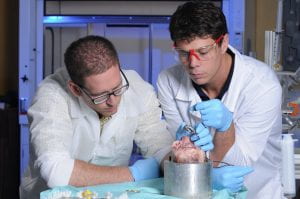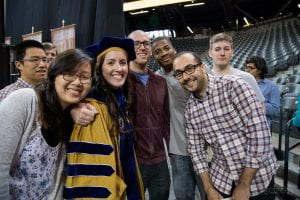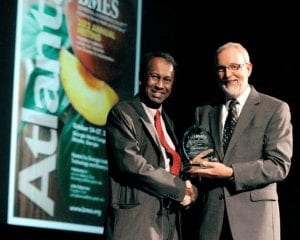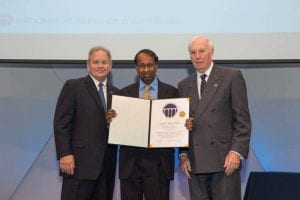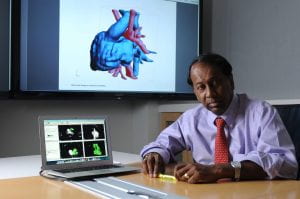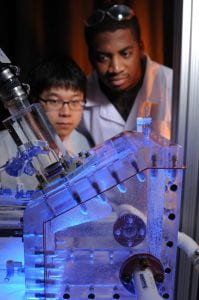
“The Cardiovascular Fluid Mechanics Laboratory focuses on understanding complex cardiovascular problems using fundamental engineering and science. The main objective of my lab is to provide answers to life-saving clinical questions using engineering approaches.”
Ajit P. Yoganathan, PhD
Wallace H. Coulter Distinguished Faculty Chair & Regents’ Professor
Associate Chair for Translational Research
Director, Cardiovascular Fluid Mechanics Lab
For more than 40 years Ajit Yoganathan has been a pioneer in basic and translational cardiovascular research, especially experimental and computational fluid mechanics as it pertains to artificial heart valves, the whole heart, and congenital heart diseases. His work involves the use of optical techniques such as laser Doppler velocimetry, digital particle image velocimetry, and clinical tools such as cardiac ultrasound and magnetic resonance imaging to non-invasively study and quantify blood flow patterns and parameters in the cardiovascular system, both on the bench and in vivo. In an effort to take an interdisciplinary and translational approach to his research, Dr. Yoganathan has established collaborations with clinicians, scientists, and industry professionals world-wide.
Since joining the Georgia Tech faculty in 1979, Dr. Yoganathan has mentored more than 50 doctoral students, 35 masters’ students, and 30 post-doctoral trainees. He played a pivotal role in the creation of Georgia Tech’s master’s and Ph.D. degree programs in bioengineering as well as the joint Ph.D. in Biomedical Engineering with the Emory University School of Medicine. In 2010 he was appointed the Founding Editor-in-Chief of Cardiovascular Engineering and Technology (CVET) – one of the newest journals of the Biomedical Engineering Society which in 2015 was accepted to PubMed. Dr. Yoganathan has also played an important role in the development of U.S. and international standards for cardiovascular devices and has received many distinguished honors including the Biomedical Engineering Society’s Pritzker Lecturer Award and membership to the prestigious National Academy of Engineering. He currently has 16 issued U.S. patents, with another 5 patent applications under review, and to date has published more than 40 book chapters and 400 peer reviewed journal articles.
It is worth noting that all prosthetic heart valves in use in U.S. since 1975 have been evaluated (either directly or indirectly) in Dr. Yoganathan’s Cardiovascular Fluid Mechanics lab.
For more information, please refer to Dr. Yoganathan’s CV.




